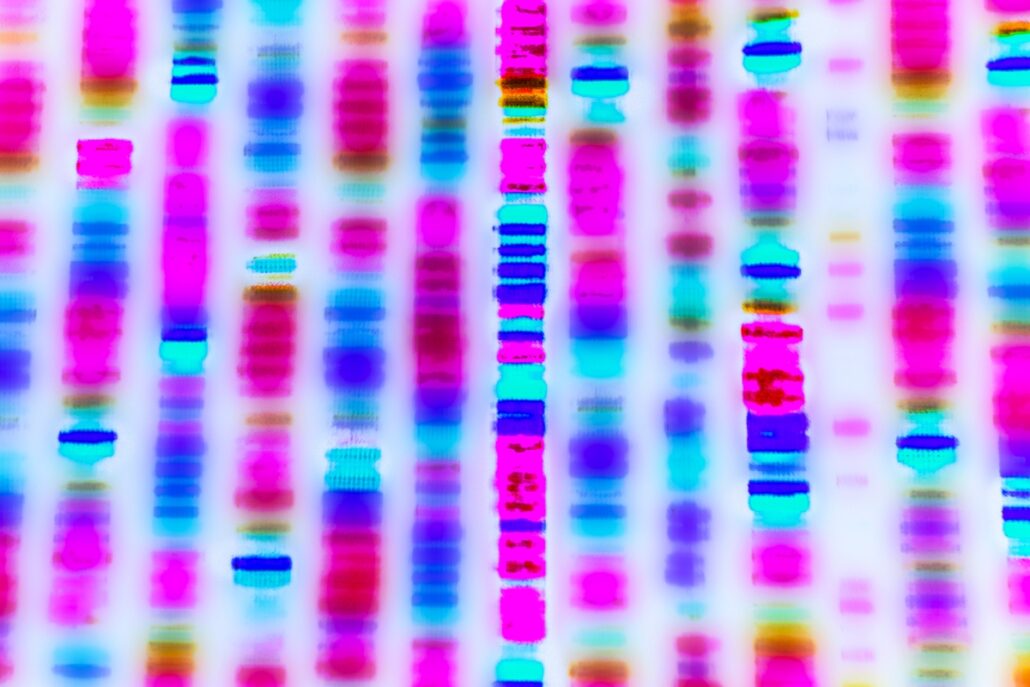Vitamin B9 is crucial for our physical and mental wellness. It comes in two forms: folate from foods, and folic acid from supplements. However, your body cannot immediately metabolize or use the vitamin B9 you get from food and supplements. First, the methylenetetrahydrofolate reductase (MTHFR) enzyme needs to convert vitamin B9 into methylfolate, or activated vitamin B9. The MTHFR gene controls how your body produces this MTHFR enzyme, and consequently, how it affects your body’s conversion of both folic acid and folate into methylfolate. This is crucial for your understanding of how MTHFR and mental health relate.
Why Should You Care About Methylfolate?
Methylfolate is used for many important processes in the brain and it is essential for mental wellness.
Synthesizing Neurotransmitters
Methylfolate plays an important role in producing neurotransmitters, the chemicals our brain cells use to communicate with each other. Our bodies use methylfolate to make serotonin, dopamine, and norepinephrine, neurotransmitters involved in mood regulation.
When this is disrupted, individuals are more likely to experience changes in mood.
Maintaining Healthy Red Blood Cells
Folate is also critical for red blood cell formation, and folate deficiency is linked to megaloblastic anemia, a condition in which red blood cells are abnormally large and cannot properly deliver oxygen to the body’s tissues.
Preventing Heart Disease
Low folate levels or decreased MTHFR enzyme activity can lead to an increase in homocysteine, which is a marker associated with the development of heart disease.
Where Can You Get Vitamin B9?
Before the MTHFR enzyme can convert vitamin B9 into methylfolate, your body needs vitamin B9. Natural B9, or folate, is present in the food you eat. Synthetic B9, or folic acid, is found in supplements. The recommended dietary intake varies with age and other factors. Simply put, most adults are advised to get 400 mcg of vitamin B9 per day.
Foods rich in folate include:
- Broccoli
- Brussels sprouts
- Leafy green vegetables such as spinach and mustard greens
- Nuts, beans, and peas
- Orange juice
- Beef liver
If you think you may not be getting enough folate from food, you can take dietary supplements that provide folic acid. Talk to your healthcare provider about supplement options that can increase your daily intake of vitamin B9.
Normal Functioning MTHFR vs. MTHFR Variants
The MTHFR gene serves as a blueprint for the MTHFR enzyme, and some common variants within this gene can reduce that enzyme’s activity, i.e. your body’s ability to convert folate and folic acid into methylfolate. We all have two copies of the MTHFR gene, one from our mom and one from our dad. Either copy or both may carry an MTHFR variant.
These genetic variants of MTHFR are caused by changes in the gene’s DNA sequence. In turn, they may affect both your physical and mental health.
MTHFR and Mental Health
The connection between MTHFR and mental health can be important to understanding your mood and energy levels. Genotypes associated with decreased activity of the MTHFR enzyme may lead to decreased vitamin B9 metabolism and less methylfolate. This may predispose those individuals towards having low mood and energy.
Luckily, a predisposition does not necessarily cause a change in mood. The impact of a genetic predisposition is something that can be mitigated and addressed. If you have an MTHFR variant, there are many ways, pharmacologically (with supplements) and non-pharmacologically (with actions), that can boost your mood and stamina.
Genetic Testing For Mental Health
In that way, identifying your genetic predispositions, such as a potential MTHFR variant, gives you an important foundation for understanding and addressing your mental health and wellness concerns. The Genomind Mental Health Map™ is a DNA-based assessment tool for mental health and wellness that provides in-depth analysis of your genetic predispositions across the 7 Core Genetic Mental Health Capabilities™, including Stress & Anxiety, Mood, Social Behavior, and more.
The Mental Health Map pairs actionable insights with personalized recommendations that you can take to sustain and improve your mental wellness. Recommended actions are specific and science-backed so that you target the genetic and biological mechanisms (like those relating to your mood) that may be impacting how you feel and behave. No prescription is required.
Learn More About Your MTHFR Gene
By understanding your genetic variants, you can be more aware of their potential influences on your feelings and behaviors, and take action to mitigate the effects of those influences (if they’re negative). This self-awareness can lead to self-empowerment and improvement across areas like your temperament. Find out more about your genes like MTHFR and mental health with the Mental Health Map.

